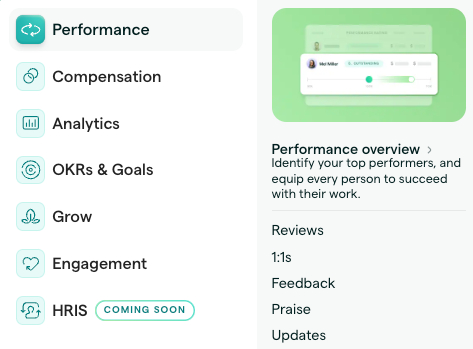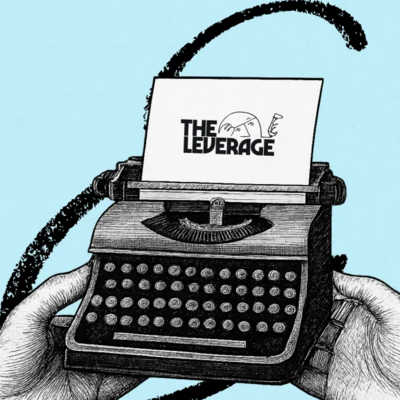
There are no secrets in software company strategy. Founders follow a well-established playbook that is freely available and universally implemented, while at the same time, the cost for competitors to make copy-cat products is getting ever smaller. In fact, a founder can assume that essentially nothing they make is long-term defensible. Yikes! Every economist would tell you that this situation should result in the destruction of value, and margins should be razor-thin.
Yet the gross margin for an average software company is over 80%.
Software is, in my opinion, the best business model ever devised by mankind. The cash flows are totally righteous. The margin is judicious. It is the pinnacle of 200 years of capitalism. In complete violation of what I learned in econ 101 (that, admittedly, I got a B- in), these companies can achieve outrageous levels of success and profitability.
How can this be?
Software is such an incredible business because it has close to zero marginal distribution cost. Once you build the software, you can send it over the internet for (essentially) free to as many customers as you like. Additionally, software is sticky. The best companies will make more money every year from the same cohort of customers. Yes, when competition is fierce, acquisition costs go up, but a well-executed go-to-market strategy can overcome that.
This is, like, a mildly interesting topic to which I could devote a newsletter edition. But the much more interesting and devilishly challenging thing to write about (and the thing I’ve been obsessed with for years) is that everyone knows this. What I wrote above contains obvious knowledge that would be at home within a software strategy 101 textbook.
The result is a meta-market: because founders know what playbook their competition is running, they end up positioning themselves against moves their competitors will make in three years. Let’s say I run a newsletter software company, similar to Substack or Beehiiv. Since each company has a unique starting point, we’ll each have relative strengths. Substack is great at helping writers acquire readers. Beehiiv has a much stronger analytics suite. My hypothetical company could have really strong branding and design. I can know, with certainty, that over the next three years both Beehiiv and Mailchimp will move closer to my capabilities, while I move closer to theirs: Substack will improve its graphics, Beehiiv will copy some of Substack’s discovery features, etc.
In most industries, competition is a knife fight—it’s fast and dirty. In contrast, B2B SaaS is a chess match, cerebral and drawn out. And it’s because rather than merely guessing about what their foes will do, founders can forecast with a spooky level of certainty what is going to happen.
I’ve even made this into a game. When I see a company is teasing a new product launch, I’ll email their rival and ask, “Any idea what this is?” Usually, I’ll get a response like, “Haven’t heard anything, but my guess is X.” They are almost always right.
They are able to do this because the playbook is known. And, luckily, I’m going to teach it to you.
The software company playbook
The journey of software company goes like this:
- A point solution solves a specific problem for a specific group of people. Over time, the point solution’s capabilities grow, expanding what type of customers they can serve.
- Next, the company will go multi-product. It’ll start to offer multiple things that will serve either its core customer or related functions in the org it’s selling to.
- Then the company will become a platform, allowing an ecosystem of partners to build products or services on top of what it is already offering.
- The cycle begins again with new point solutions, typically related to its platform capabilities, for new use cases.
To grow beyond the initial customers for which its point solution works, a company can either expand horizontally (use the same tools to serve a new set of customers with similar problems) or vertically (create new tools that serve other problems its existing customers are facing). So a piece of software that facilitates tipping your barista could expand horizontally by helping other types of retailers implement tipping, or it could expand vertically by selling other coffee shop software. While this may sound banal, because the internet is ubiquitous, the available opportunity for software companies is in the realm of trillions of dollars.
When you think about a point solution, the software’s function changes based on the size of the customer and what that customer does. To continue the coffee example, the software would need to be designed differently for ye olde local coffee shoppe than for Starbucks—perhaps by focusing on the barista (for the former) versus the supply chain team (for the latter).
I recognize this is hand-wavy, but think about how overheated this dynamic can make the competition. Every person at a company, every function from human resources to finance, will have multiple software companies competing to solve their problems. Enterprise will be moving into mid-market. Related industries will try to encroach. It is, frankly, ridiculous. And no single software provider can solve all the needs of an individual. The average employee uses 11 different applications to accomplish their work.
To win, a company's goal is to own the most powerful piece of data and/or workflow that will allow it to hold its competitors at bay. For example, most restaurant software companies try to own the customer ID or the point-of-sale system because you can use that data to connect to everything else happening in the restaurant, from sales to food orders. Think of how you see Toast or Square logos at your coffee shop's cash register. A similarly important control point exists for each function, industry, or business type.
So, in this context, let’s talk about human resources.
PIP this
When I hear the phrase “human resources,” I picture sad-eyed men wearing Lululemon dupes from Target—folks whose sole purpose in life is making sure that I do corporate training that turns my brain into goo. (Clearly, I’ve had great experiences with these wonderful people.)
What HR actually is, though, is a complex mix of critical tasks:
- Benefits
- Payroll
- Performance management
- Recruiting
- Firing people in ways that won’t get the company sued
While the thought of managing this stuff personally fills me with the desire to be boiled in canola oil, someone has to use software to accomplish these tasks. This is a lot of stuff! Frankly, no company can be great at all of this. Remember—the goal of software companies is to own the most important data or workflow because it means they will be the least likely to be replaced by a competitor. And, most importantly, everyone knows their competitors are also doing this.
So to win, companies have to come up with a distinct thesis on what the most important workflow is for their customer and how they are going to own it. To learn more, I chatted with Jack Altman, the CEO of Lattice, a HR SaaS company most recently valued at $3B. He argued that at early-stage companies, payroll is what matters most. “Small companies are just hoping to get everyone paid on time,” he said. Here startups like Gusto do really well. At big companies, the thing that matters most is, he told me, “owning the employee ID”; Workday has nailed this to the tune of a $56B valuation.
When Altman started Lattice, he aimed solely at the mid-market. His point solution for these customers was performance reviews. Altman explained why in another interview: “There was just like this revolt against performance reviews…it was like a small early group of HR practitioners who were championing this new format, which is what Lattice was built for. And we served that, and there was some luck to it, but it just grew and that became the real default.”
Later the company went multi-product, adding tools like compensation.
Screenshot from Lattice.com
Lattice’s landing page ties all the compensation products back to its core competency product of performance management.
It’s helpful to think of software companies as something akin to religion. There is some core belief, some manner of work, that is at the heart of everything they do. Sometimes that belief is softer and more emotionally appealing, such as Lattice’s that it could do performance reviews more humanely.
At other times that belief is more pragmatic, as with HR software competitor Rippling. Its thesis is that the employee ID is at the center of everything for mid-sized companies (like, not coincidentally, for enterprise companies). Right or wrong, this is what it has based its entire product ethos around, and its performance management product drives home this point.
Screenshot from Rippling website.
Eventually the battle becomes religious. What underlying belief about the world ends up being correct? In large enough markets, like human resources, there is usually room for multiple faiths. Sometimes what you are preaching lands, like Lattice found with its higher ideal of performance reviews. In other cases it’s like the poor Mormon missionaries who end up assigned to Vatican City—there is no interest.
Perhaps the strangest artifact is that because these systems are serving similar customers and have different strengths, they have no choice but to share the market. Altman told me that Lattice has over 1,000 co-customers with Rippling and Gusto. I tried very hard to get him to trash-talk his competitors, but well-trained media CEO that he is, he dodged my attempts and referred to other HR software providers as “helping build a customer-centric ecosystem.” While the answer is boring, he is probably right to respond in this way. Still, he granted the interview because Lattice had just launched the “Human Resources Information System,” an important part of the HR tech stack for storing employee data. Its product can and will steal market share from the rest of said ecosystem.
What game are you playing?
So how can you think about what software companies will win? It comes down to understanding what type of game the software companies are playing:
Execution game: Sometimes when the playbook is obvious, it comes down to who can run it better—so culture-market fit becomes important. Is the company properly constructed to reflect the needs of the market? Will it have a slight edge in recruiting salespeople? In design? If you out-execute—even if you have a late start, worse technical talent, and less funding—you can still win, such as with the case of SurveyMonkey versus Qualtrics.
Religious game: Many of the largest bets in software come from taking a non-obvious perspective early. By building a product built around a forecast of how work will be done in the future, startups can capture value. It is best when this way of working may be counterintuitive or even appear to be dumb. In fact, looking wrong early is often a strong signal of winning later. For example, Snowflake was a counterintuitive bet that a system could sit in the middle of all the big cloud providers. In the beginning, no one believed in it, but now the company sits at a $50B valuation.
Market game: CEO of trillion-dollar company NVIDIA Jensen Huang describes the market game as searching for “zero billion-dollar markets.” In a recent interview he described it as follows: “It’s our way of saying there’s no market yet, but we believe there will be one. Usually when you’re positioned there, everybody’s trying to figure out why are you here. When we first got into automotive, because we believe that in the future, the car is going to be largely software. If it’s going to be largely software, a really incredible computer is necessary…I think 15 years later we’re largely right.” Great companies are those that are built with decades in mind—even a time period of five years is too short. In software, when the playbook is obvious, there is a big advantage that comes from running it before anyone else.
At its core, the software universe is paradoxical: common playbooks that should herald predictable commoditization instead yield unpredictable successes. This might be unsettling for the traditional economist, but it's a fascinating phenomenon for the astute founder.
Where does this leave us? First, it's essential to recognize that the uniqueness of software strategy isn't rooted in what companies do but in how they do it. In a world where everyone has access to the same roadmap, the differentiator becomes the vision, culture, and adaptability of the company itself. It's not just about selling a software solution; it's about selling a belief, a future perspective that entices and resonates.
Lattice and Rippling demonstrate that while companies might operate in the same space, their beliefs can diverge significantly. Sometimes it’s a humane touch to a traditional process; other times it’s a hard-hitting conviction about what truly matters. Companies that grasp and leverage their unique "why" are those that flourish in the ocean of copycat SaaS.
Lastly, for the keen investor, the key to picking winners isn't just about knowing the playbook; it's about discerning which companies truly understand the game they're playing.
The Only Subscription
You Need to
Stay at the
Edge of AI
The essential toolkit for those shaping the future
"This might be the best value you
can get from an AI subscription."
- Jay S.
Join 100,000+ leaders, builders, and innovators

Email address
Already have an account? Sign in
What is included in a subscription?
Daily insights from AI pioneers + early access to powerful AI tools












Comments
Don't have an account? Sign up!